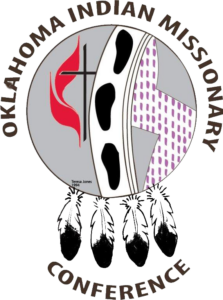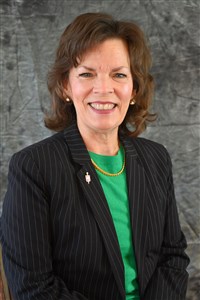
OIMC Advance Projects:
Construction Project
Advance # 583633
Parish Partners
Advance # 583634
Native American Children’s Fund
Advance # 583581
Month: April 2020
-
2020 Native American Ministries Sunday Service
April 26, 2020 | On Native Ministries Sunday in The United Methodist Church, your offering empowers Native American pastors, congregations and seminary students all over the United States. Supporting Native…
-
COVID-19 Update by Bishop Jimmy Nunn and the Rev. David Wilson
To: Pastors and Congregations of the Oklahoma Indian Missionary Conference From: Bishop Jimmy Nunn and the Rev. David Wilson, Conference Superintendent Date: April 23, 2020 Re: Memo 3— Covid-19 Greetings in…
-
Redefining life 25 years after the Oklahoma City bombing
The 25th anniversary of the Oklahoma City bombing, April 19, 2020, is occurring while the state is under stay-at-home protection orders due to the coronavirus. This is the first year…
-
Celebrate Native Ministries Sunday Online
The Oklahoma Indian Missionary Conference (OIMC) has created a resource page to help United Methodists celebrate and observe Native Ministries Sunday online. The official observance date for the denomination is…
-
Six Native churches receive grants to support community
The Oklahoma Indian Missionary Conference (OIMC) has received a $5,000 grant from the Native American Community Response Fund to help provide urgent assistance to the most vulnerable Native communities in…
-
Prayer by Josephine Deere
By Josephine Deere, Muscogee Creek, retired DCM, OIMC We gather here in the presence of the Great Creator. We come together as one in Christ from all over this great…
-
Native American Ministries Sunday Resources
Celebrate Native American Ministries Sunday on a date that is convenient for your congregation. The official date is April 26, 2020. The Oklahoma Indian Missionary Conference has created this page…
-
Benediction by Prieres D’Ozawamick
Prieres D’Ozawamick, Canadian Indian, 20th Century, United Methodist Book of Worship You have come from afar and waited long and are wearied. Let us sit side by side, sharing the…
-
“Catlin’s Creed” Responsive Reading
Men: I love a people that have always made me welcome to the very best that they had. Women: I love a people who are honest without laws, and who…
-
Prayer by the Rev. Delana Taylor
By Rev. Delana Taylor, Cherokee, Ordained Deacon, OIMC Creator God, as you have gathered us in generations past, lead and guide us this day as we seek your wisdom and…
Posts pagination
Contact Information
Conference Headquarters
602 SW 35th
Oklahoma City, OK 73109
Office: 405-632-2006
Fax: 405-632-0209
Resident Bishop:

Bishop Laura Merrill
1501 NW 24 Street
Oklahoma City, Oklahoma 73106
405-530-2000
Assistant to the Bishop:
Rev. Margaret Johnson
mjohnson@oimc.org
Director of Connectional Ministries:
Rev. Donna Pewo
Administrative Assistant:
Linda Draper
Northeast Region Superintendent:
Southeast Region Superintendent
Rev. Jami Moss
jmoss@oimc.org
Southwest Region Superintendent:
Rev. Julienne Judd
jjudd@oimc.org
SUPPORT OUR MINISTRIES
Search Our Site
